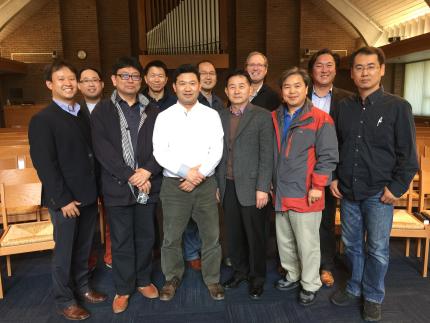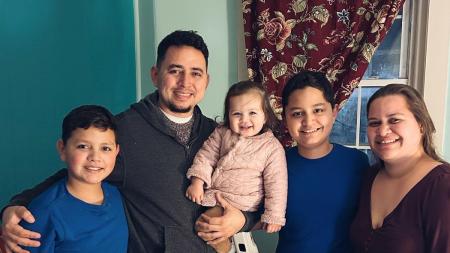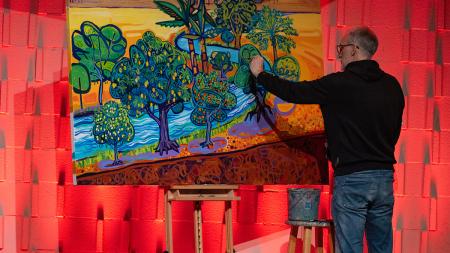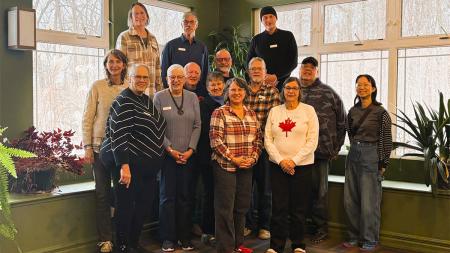Korean Pastors Meet to Learn About CRC

Members of this year's Korean Institute of Ministry
A Korean pastor from Rapid City, South Dakota and a pastor from California were among the Korean pastors who took part in this year’s Korean Institute for Ministry (KIM) program.
Held in West Michigan, the KIM training is an orientation that involves nine days of intensive study for Korean pastors interested in learning more about and becoming ordained in the CRC, said Charles Kim, Korean ministry and ethnic ministry leader for Christian Reformed Home Missions.
“The pastors learn about CRC history, Reformed teachings, church order, church polity and other things,” said Kim.
The pastors met at a CRC congregation in Grand Haven, toured the historic Graafschap Christian Reformed Church in Holland, Mich., attended classes at Calvin Theological Seminary and made visits to the CRC office in Grand Rapids.
“These are not church planters,” said Kim. “They are pastors of churches who are starting the affiliation process prior to undergoing a classical examination into the CRC.”
The Korean community is the largest ethnic group within the CRC, said David Koll, director of the denomination’s Candidacy Committee.
“Each year well over half of the new pastors who enter the denomination through Article 8 — the route for those already ordained in another denomination — come from the Korean community,” said Koll.
In some cases the Korean congregations share a facility with another Christian Reformed church, and in many cases their congregations are located in communities where there are other CRC congregations, said Koll.
“This offers great potential for two congregations to learn from and support one another, and to broaden their kingdom vision,” he said.
Along with the Reformed theology, the Korean pastors resonate with the immigration story of the historical Christian Reformed Church, said Kim.
“Korean immigrants share a very similar story and values. They have also gone through the immigration process,” said Kim.
In April, said Kim, pastors who are members of the Korean Council held their annual meeting in Manila in the Philippines. They often meet in North America, but there are periodic meetings overseas to give members of the Korean Council a look at the CRC’s international ministry.
During this trip, they visited schools with CRC ties, said Kim. They visited Faith Academy, a Christian day school, and the Asian Theological Seminary. Both are in Manila.
“This type of gathering brings together pastors from all over the denomination to discuss issues Korean pastors are having in North America as well as discuss and learn from one another through fellowship,” said Kim.
Although Koreans make up the largest ethnic group in the CRC, there are a growing number of other other groups such as Chinese and Cambodians showing interest in the CRC, said Kim.
“We want to explore ways we can all work together in embracing global congregations,” he said.


